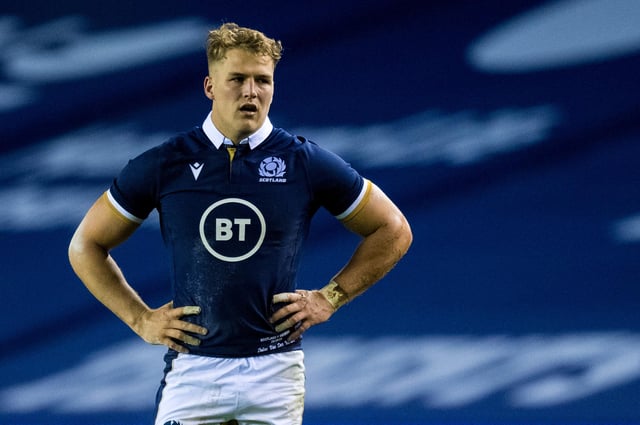In four matches to win the Grand Slam in 1984 Scotland used only 20 players.

There might have been fewer but for injuries in the second game which ended the participation in the tournament of Bill Cuthbertson and Euan Kennedy. Another of the 20, Selkirk's Gordon Hunter, played only the second half in Dublin as a substitute for the injured Roy Laidlaw. 1984 was long before the days of substitutions-at-will. Nowadays, with replacements flooding the field, a team may use 20 players in the first hour of the championship.
Scotland were lucky with injuries in 1984 and 1990. This made selection easier. So, of course, did winning. "Never change a winning game – always change a losing one" was the advice of the great American tennis player, Bill Tilden. It may be applied to selection. So it's a little surprising that the Welsh coach Wayne Pivac, retained 14 of the XV that lost to Scotland for the first match of this month's Nations Cup.
Nowadays, of course, the selector-coach thinks in terms of a match-day squad, not just a XV. Moreover there are many more internationals – Scotland will have played ten from October 31 to March 20. Injuries are also more frequent. One may reasonably expect that more than 30 players will wear the Scotland jersey this season, possibly as many as 40.
In England, they are speaking of Eddie Jones being engaged on a "Project Depth". All selector-coaches have their eye on something similar, their problem being to pick a team to win now while also laying the foundation for winning two, three, four years down the line. Identifying what Ian McGeechan calls "Test Match animals" is the first problem, developing them the second.
One might go further, injuries to Finn Russell and Adam Hastings in Llanelli suggesting you need three such animals for each position. Fortunately, there's Duncan Weir to take over at 10; but if he is injured….
Scotland are expected to win, and even win well, in Florence today. It will be a sad setback if we don't. This may be the strongest and most skilful scrum we have fielded in years. Perhaps the only question mark is over No 8. Blade Thomson played well against Wales and may be the answer. But so far no Scottish 8 in a long time has imposed himself on a match as C J Stander has so often for Ireland or Billy Vunipola for England.
A strong scrum should give your backs opportunities even though the preferred fashion today is to use dominance in the set scrum as a means of winning penalties rather than moving the ball. Jamie Ritchie and Hamish Watson were terrific at the breakdown against Wales. On the other hand, when we carried it into the tackle we too often failed to drive beyond it and so rarely supplied quick clean ball to Ali Price. An improvement here is surely necessary if we are to make best use of the backs and the striking power and pace in the back three especially.
There are still question marks over 12 and 13. Chris Harris brings defensive solidity and reads the game well, though his handling seems less secure than one would wish. James Lang has been good in defence, offered little in attack. Sam Johnson can bring that edge; he has the ability to get through the first line of defence. Yet it remains the case that none of our centres would,if eligible, have much chance of being picked for England, France or Ireland.
There has been some snide talk about South African accents in the Scotland team and if Duhan van der Merwe runs in a couple of tries there will be more chatter. One might prefer to see a Scotland XV like the 1984 one, almost all born and bred here. But in truth we haven't often been in a position to field such a team as a trawl through the records will show. Meanwhile, the facts are simple. The rules about eligibility are drawn up by World Rugby. Every country takes advantage of them when it seems suitable to do so. If Scotland are now selecting a South African wing qualified by three years residence, Ireland last night gave a first cap to the New Zealander James Lowe who for three years has been scoring tries as prolifically for Leinster as van der Merwe has for Edinburgh.
I would add only that selecting a player who, qualifying by residence, has at least shown a commitment to rugby here and contributed to his club, either Edinburgh or Glasgow, seems preferable to whisking someone from New Zealand and handing him a Scotland jersey, on the strength of a grandparental qualification, before he has played any club rugby here. There were a number of such players in the first ten years of the professional game. Some of them didn't hang about long enough to strengthen whichever pro club they were assigned to.
A message from the Editor:
Thank you for reading this article. We’re more reliant on your support than ever as the shift in consumer habits brought about by coronavirus impacts our advertisers.
If you haven’t already, please consider supporting our trusted, fact-checked journalism by taking out a digital subscription.
Source: scotsman.com

Комментариев нет:
Отправить комментарий